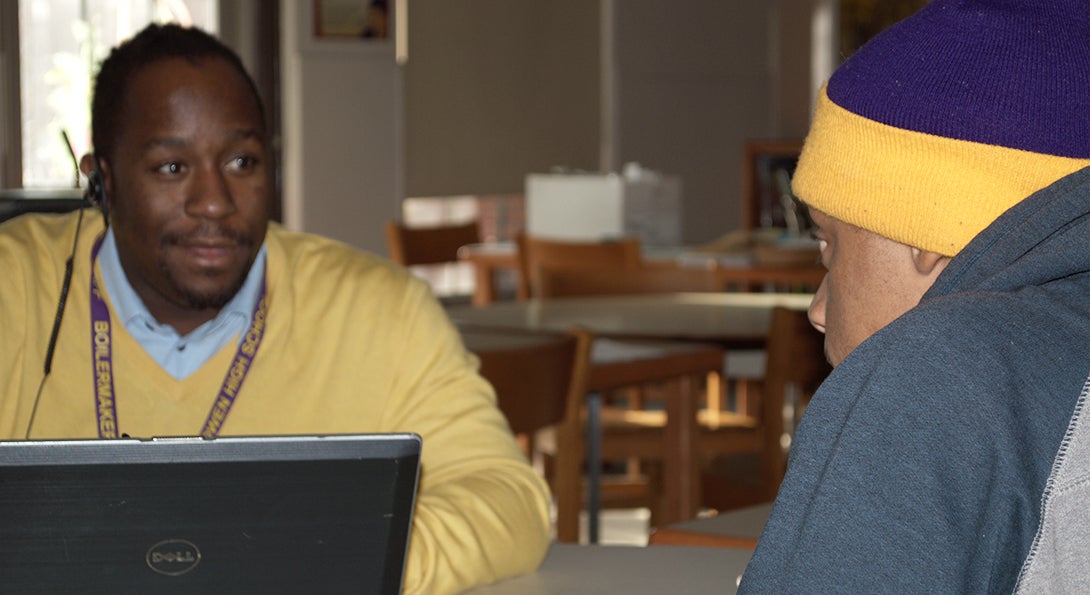Building Future Black Teachers

Step into any school and one truth will become clear: the nation’s teacher body is mostly white and female. Take a closer look, and that teaching body becomes even more homogenous: the majority of white female teachers speak English as their dominant language and are generally middle class. Black teachers, particularly male teachers, are few and far between.
Why this disparity in diversity has grown is far more complex. Research from the North Carolina Agricultural and Technical State University in Greensboro reveals African American males are largely not even considering the teaching profession because of their negative experiences with education.
At the University of Illinois at Chicago College of Education, doctoral student Marcus Croom is seeking to reverse that trend. Croom, PhD Literacy, Language and Culture student, is leading the College’s second annual Pre-College Leadership and Impact Program July 21-Aug. 1, seeking high academically-performing African American males from Chicagoland for a two-week intergenerational leadership development workshop, with the goal of nurturing the next generation of African American teacher leaders.
“If we can give them an alternative experience and voice of what being a teacher is about, if we can say to them, ‘Some of the things you are critical about, what you experienced, we actually agree with you,’ that helps them rethink things,” Croom said.
The workshop is structured in two phases, with the first week geared towards developing the leadership skills of the adolescent males. Activities and discussions focus on five frames of leadership: collaborative, cultural, community, youth and academic leadership. An overaching goal is to position teaching in the same leadership categories as traditional leadership positions such as CEO, pastor or enlisted military personnel. This year’s edition of the workshop has a particular focus of exposing participants to the concept of education research as a career field.
In the second week, the high schoolers will work with 3rd-5th graders from Chicagoland to communicate the same five frames of leadership to this younger audience.
“They need the experience to know that teaching isn’t only what they knew at school; it can be two or three other things,” Croom said. “Whether or not they are serious about becoming an education major, they will become aware that there are other perspectives and voices and experience that relate to being a teacher.”
Croom says he believes the teaching profession is being written off in some quarters of society under the guise of making education “teacher-proof.” He says education leaders need to make the opposite statement, that teachers need to be in control and making proactive judgments about what needs to happen in young people’s lives.
“You hear a lot about modeling, about the importance of having an African American teacher to model to other young Black males, and all that is fine, but beyond that this is all about leading,” Croom said. “You are leading the life development of a young person, telling them in a sense what is OK and what is not OK, tell them about not what your intended curriculum is but your unintended curriculum, what you embody as a human being when interacting with them.”